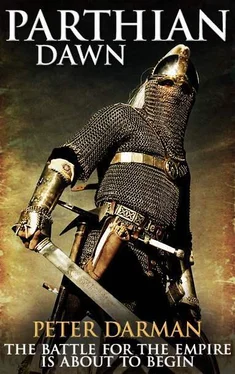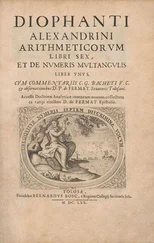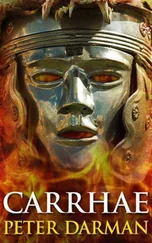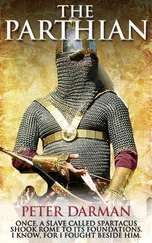Peter Darman - Parthian Dawn
Здесь есть возможность читать онлайн «Peter Darman - Parthian Dawn» весь текст электронной книги совершенно бесплатно (целиком полную версию без сокращений). В некоторых случаях можно слушать аудио, скачать через торрент в формате fb2 и присутствует краткое содержание. Год выпуска: 2012, Жанр: Исторические приключения, на английском языке. Описание произведения, (предисловие) а так же отзывы посетителей доступны на портале библиотеки ЛибКат.
- Название:Parthian Dawn
- Автор:
- Жанр:
- Год:2012
- ISBN:нет данных
- Рейтинг книги:3 / 5. Голосов: 1
-
Избранное:Добавить в избранное
- Отзывы:
-
Ваша оценка:
- 60
- 1
- 2
- 3
- 4
- 5
Parthian Dawn: краткое содержание, описание и аннотация
Предлагаем к чтению аннотацию, описание, краткое содержание или предисловие (зависит от того, что написал сам автор книги «Parthian Dawn»). Если вы не нашли необходимую информацию о книге — напишите в комментариях, мы постараемся отыскать её.
Parthian Dawn — читать онлайн бесплатно полную книгу (весь текст) целиком
Ниже представлен текст книги, разбитый по страницам. Система сохранения места последней прочитанной страницы, позволяет с удобством читать онлайн бесплатно книгу «Parthian Dawn», без необходимости каждый раз заново искать на чём Вы остановились. Поставьте закладку, и сможете в любой момент перейти на страницу, на которой закончили чтение.
Интервал:
Закладка:
It was mid-morning now and the sun was beginning its ascent in a clear blue sky. There was but a slight breeze, and already the day was very warm. We left the city via the northern gate, one of four that gave access to Hatra, and then rode across the causeway over the wide, deep moat that surrounded the whole city. Hatra was in the middle of a desert, but the city itself was fed by many springs that produced cool, sweet water. These springs kept Hatra green and the moat full, but my father kept the surrounding area deliberately parched. When I asked him why he did not build watercourses that would make the desert bloom he had smiled and replied. ‘If an army lays siege to Hatra, its troops will die of thirst before they breach the city walls.’
It took us half an hour to reach the encampment of my followers, a vast collection of tents, temporary canvas shelters, dogs, horses and camels. It was not difficult to find, as there was a steady stream of traffic going to and from the city carrying food, shelters and water to the site. My father was right: it was an unsatisfactory situation and had to be resolved quickly. It was also costing his city a small fortune to maintain this desert army.
At first glance the mass of dwellings resembled total chaos, but closer inspection revealed that, slowly, a sense of order was being established among the disorder. The architects of this transformation were Lucius Domitus and Nergal. Domitus, ex-Roman centurion, was busy forming the disparate throng into new recruits. To this end he had called upon his training and had begun to organise the camp along Roman lines. Thus instead of haphazard groupings of tents, the shelters were now being arranged in neat lines and rows, with tents grouped into symmetrical blocks. And I noticed that many men were employed in digging what appeared to be a dirt rampart around the whole assembly. Gafarn and I dismounted and walked our horses through the camp. Men stopped what they were doing to stare at us, or rather me, and I felt slightly uncomfortable when they began to clap and cheer. The shrill sound of a whistle being blown, followed by a stream of curses, soon diverted their attention back to their duties.
‘It’s beginning to resemble the camps we had back in Italy,’ remarked Gafarn.
‘Old habits die hard for Domitus,’ I added.
‘I doubt that they die at all,’ he replied.
Domitus stomped towards us, the sun glinting off the round steel discs on his mail tunic and his metal greaves. Thickset with a lean face, his Roman helmet sported a white transverse crest and his tunic was also white.
‘I wish you would send word when you intend to visit the camp,’ he said, ‘your presence can have a detrimental effect on some of the more impressionable ones we have here.’
‘Impressionable ones?’ asked Gafarn.
‘The dreamers and mystics,’ replied Domitus, his muscular arms now turned brown by the Mesopotamian sun, ‘those who believe that your brother is a god.’
‘And you don’t believe that I am a god, Domitus?’ I teased him.
‘The day you can fly around the battlefield instead of riding upon it, then I’ll believe that you’re a god.’
‘Quite right, Domitus,’ added Gafarn,’ we don’t want his head getting any bigger than it is.’
At that moment a column of recruits marched past, about two hundred in twenty ranks. They had no weapons, shields or armour, but they did seem to be marching in step. At the head of the column marched one of the Germans or Dacians who had served with Spartacus in Germany, his long black hair spilling out from under his helmet. He wore a mail shirt and carried a shield and sword at his hip. Two of his comrades brought up the rear. Domitus eyed the recruits as they passed, and suddenly hit one of them across the back of the shoulders with his vine cane.
‘No talking in the ranks,’ he bellowed in Latin.
The recruits, being from various Parthian provinces or runaway slaves from Egypt, Syria and a host of other places, would not have understood his words, but they would have discerned the sentiment behind the blow. When I had been in Italy I had learned that the favoured instrument of a centurion, the men who were the backbone of the Roman fighting unit called a legion, was a vine cane around three feet in length, with which they used to beat recruits for even minor infractions, plus anyone else unlucky enough to earn their wrath. I used to think that it was part of a centurion’s training to learn how to use these accursed things, but I now knew that each vine cane was created in the underworld and possessed of an evil spirit, and once on earth it searched out its owner, who always happened to be a Roman centurion.
‘You don’t have to strike the recruits, Domitus. You are not in Italy now.’
He looked at me and shook his head. ‘No, Pacorus, I need it more than ever, especially as I don’t speak the lingo.’
He was right about that. I and other members of the royal household had been taught Latin and Greek at an early age to enable us to converse with foreign monarchs and envoys when we were older, but Domitus had as yet only a smattering of our language.
‘You are surrounding the camp with a rampart?’ I enquired.
‘Yes,’ replied Domitus.
‘Who do you think is going to attack you?’ asked Gafarn.
‘No one, but I need to keep this lot,’ he waved his cane around the camp, ‘busy so their minds don’t wander. So when they’re not marching they are digging, and at the end of the day they are too tired to cause any trouble.’
‘Have any deserted?’ I asked.
‘One or two, but most are determined to stay despite my best efforts to dissuade them. That being the case, I decided that they might as well start their training.’
We continued to walk towards the centre of the camp where Domitus had set up his headquarters, a large Bedouin goatskin tent that had two guards at its entrance.
Domitus took off his helmet and wiped his sweaty brow with a cloth. In true Roman fashion he had a short-cropped scalp.
‘It’s hotter here than in Italy, that’s for sure. Will you stay for something to eat?’
‘No, thank you, Domitus. I just came out to see how things are progressing. My father is eager for us to be away. After the wedding we will move everyone here to Dura Europos.’
Domitus nodded. ‘Makes sense. Your father has been very generous so far, feeding and watering us out of his pocket. How far is it to your new kingdom?’
‘Around two hundred miles due southwest.’
‘Think they can march that far, Domitus?’ queried Gafarn.
Domitus smiled. ‘Soon they will be able to march twenty miles in five hours, and after that forty miles in twelve hours. They’ll be able to get there, have no fear.’
Gafarn looked around. ‘If you and the men that came with us from Italy don’t speak our language, how do you transmit your commands to the recruits, apart from using your cane?’
‘Oh, Nergal lent me some of his boys, the same ones that fought with you and Pacorus in Italy.’
Nergal was a Parthian who had been captured with me in Cappadocia and transported to Italy as a slave. Tall, gangly and a year older than me, he was originally from my father’s kingdom, had been my second-in-command in Italy and now commanded the fifty Parthian horsemen that had survived the defeat of Spartacus. Like him, they were now all fluent in Latin as well as Parthian.
‘Well, Domitus,’ I said, ‘it looks as though you are well on your way to raising your legion, but you can’t be a centurion any more.’
A look of hurt spread across his face. ‘I can’t?’
‘Of course not, you must become a legate. They command Roman legions, do they not?’
He flashed a smile. ‘They certainly do.’
Читать дальшеИнтервал:
Закладка:
Похожие книги на «Parthian Dawn»
Представляем Вашему вниманию похожие книги на «Parthian Dawn» списком для выбора. Мы отобрали схожую по названию и смыслу литературу в надежде предоставить читателям больше вариантов отыскать новые, интересные, ещё непрочитанные произведения.
Обсуждение, отзывы о книге «Parthian Dawn» и просто собственные мнения читателей. Оставьте ваши комментарии, напишите, что Вы думаете о произведении, его смысле или главных героях. Укажите что конкретно понравилось, а что нет, и почему Вы так считаете.












